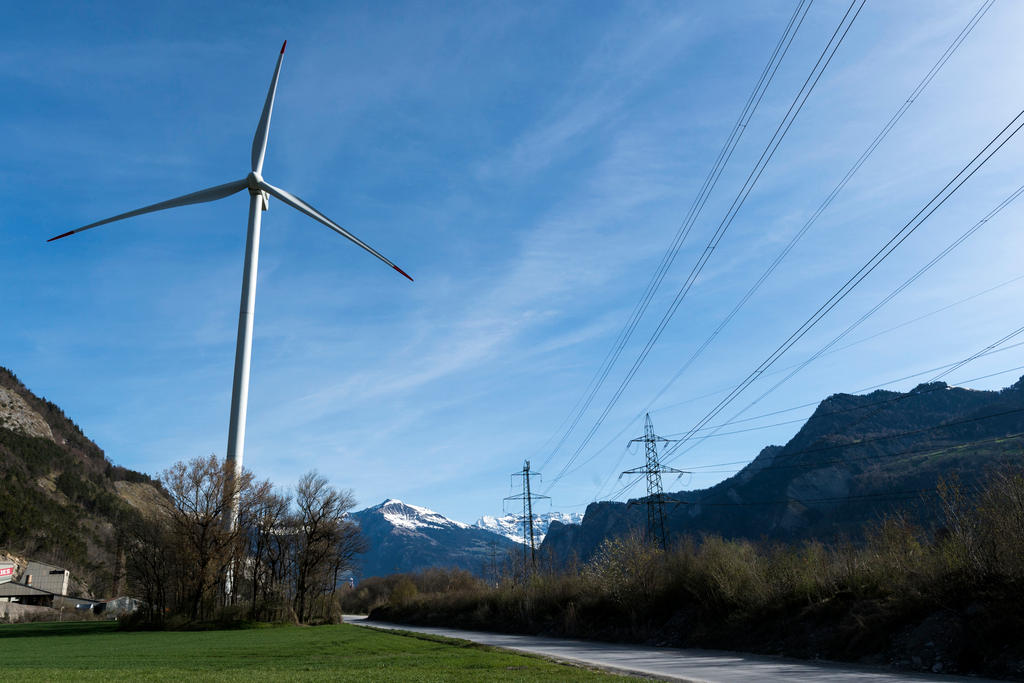
Electricity consumption and CO2 emissions fall in Switzerland

The consumption of electricity and carbon dioxide emissions have fallen in recent years, however, extra measures will be needed to meet long-term objectives set out in the 2050 energy strategy, according to a government report.
In May 2017, 58% of Swiss voters endorsed the government’s 2050 energy programme. A new energy law came into force at the start of 2018, aiming to promote renewable energy, a ban on new nuclear power plants and lower energy consumption.
The Federal Office of Energy’s first status report on the 2050 strategy, published on TuesdayExternal link, said at the end of 2017 that short-term targets were on track. Energy consumption had fallen by 15.7% compared to 2000, meeting the 2020 target of 16%. Electricity consumption had also fallen by 5% over the past 17 years, the office said.
Electricity produced from renewable energies – not including hydropower – rose to 3,653 gigawatt hours (GWh) in 2017, or 6.4% of the total; the national target is 4,400 GWh by 2020. Electricity produced by Switzerland’s numerous dams and other hydropower sources amounted to 35,878 GWh in 2017. More than a quarter of the target for 2035 has been achieved.
The report said Switzerland’s energy sources had become more diversified, with an increase in renewable energies such as solar energy, which had grown the most since 2010. Around 62% of electricity consumed in Switzerland comes from renewable sources. Hydropower is the biggest source (56%).
The energy office report said CO2 emissions had fallen to 4.4 tons of CO2 per capita in 2016. But the CO2 target of 1-1.5 tonnes by 2050 remains far off. Most CO2 emissions in Switzerland result from transport, mainly road traffic. This winter, parliament is due to re-examine the law and target to further reduce greenhouse gases in Switzerland.
A report by the Federal Office for the Environment published in September revealed that despite improvements over the past 20 years, Switzerland’s environmental footprint is still more than three times higher than the planet can sustain in the long-term. While progress has been made on reducing the impact domestically through the use of technology and new laws, the share of the impact caused abroad has risen sharply. In 2015, three quarters of Switzerland’s environmental impact was generated abroad, the study noted.

In compliance with the JTI standards
More: SWI swissinfo.ch certified by the Journalism Trust Initiative


























You can find an overview of ongoing debates with our journalists here . Please join us!
If you want to start a conversation about a topic raised in this article or want to report factual errors, email us at english@swissinfo.ch.